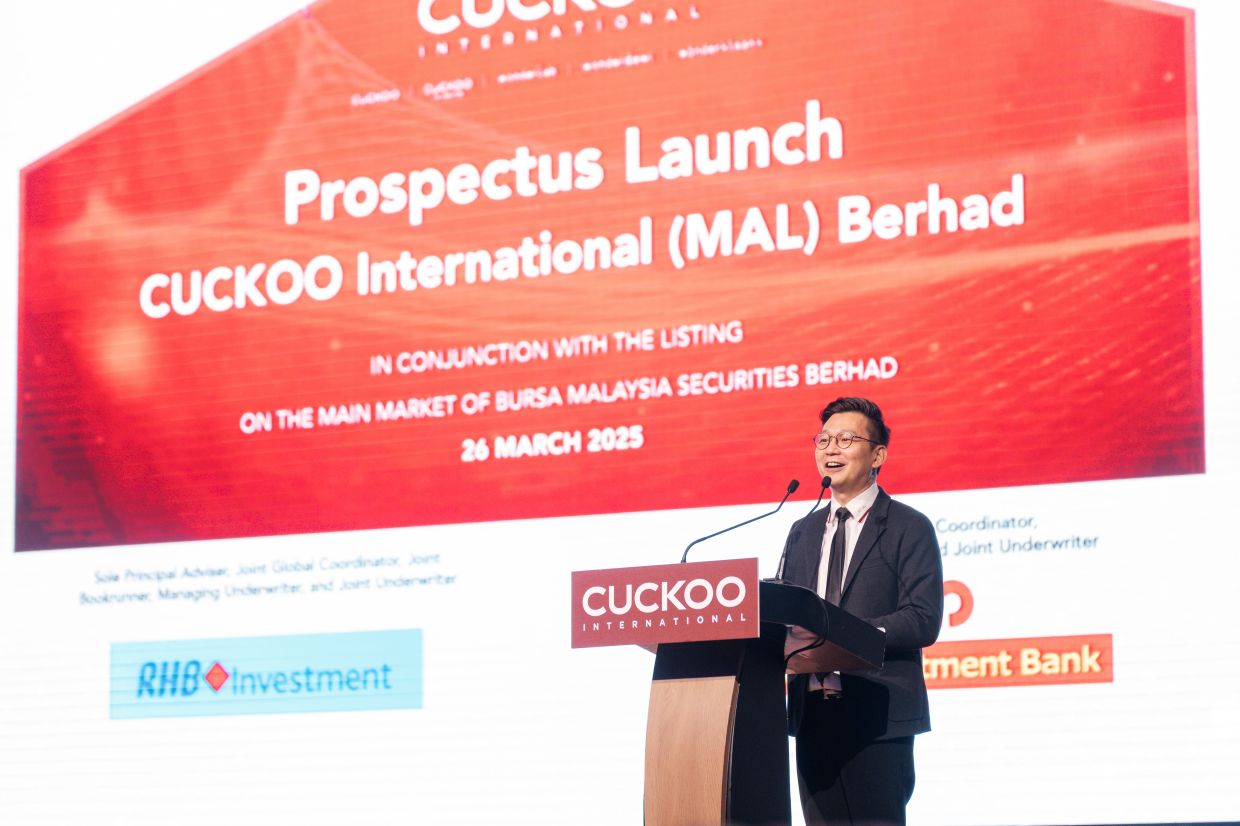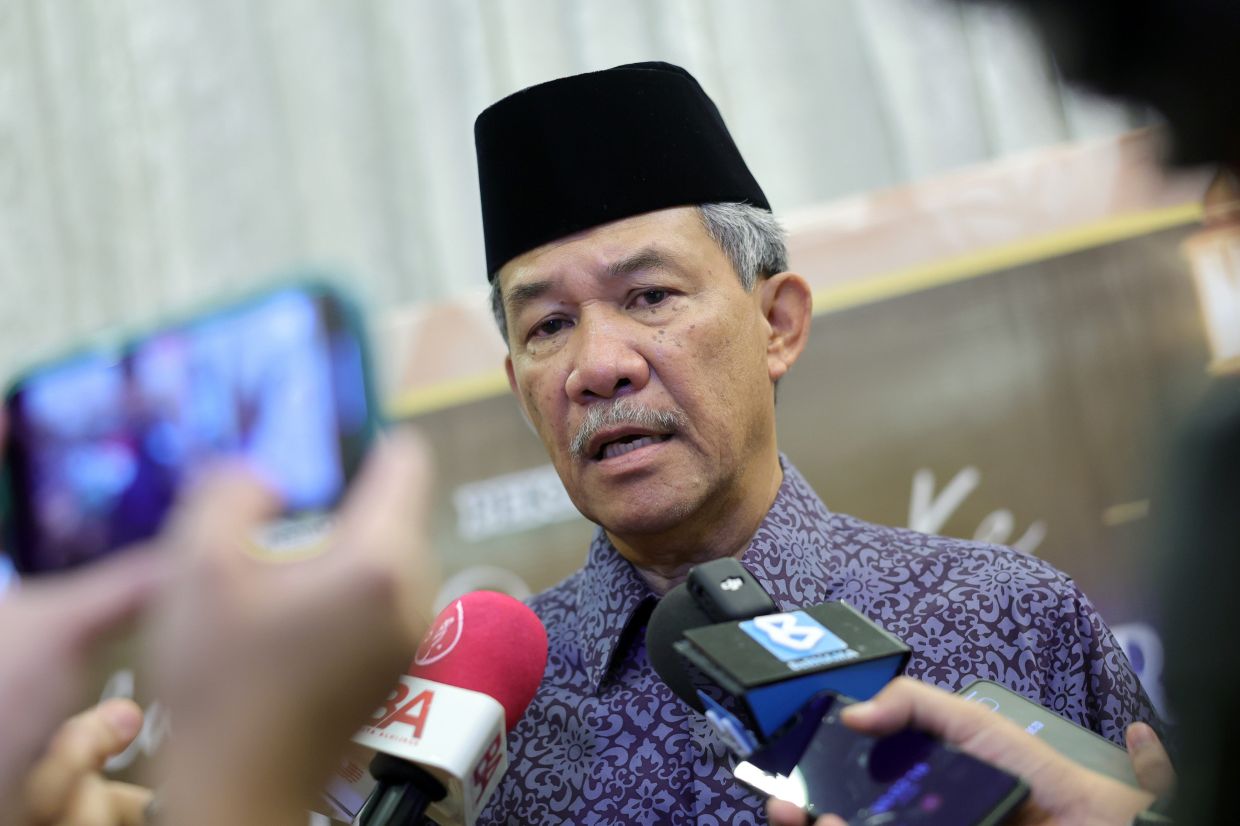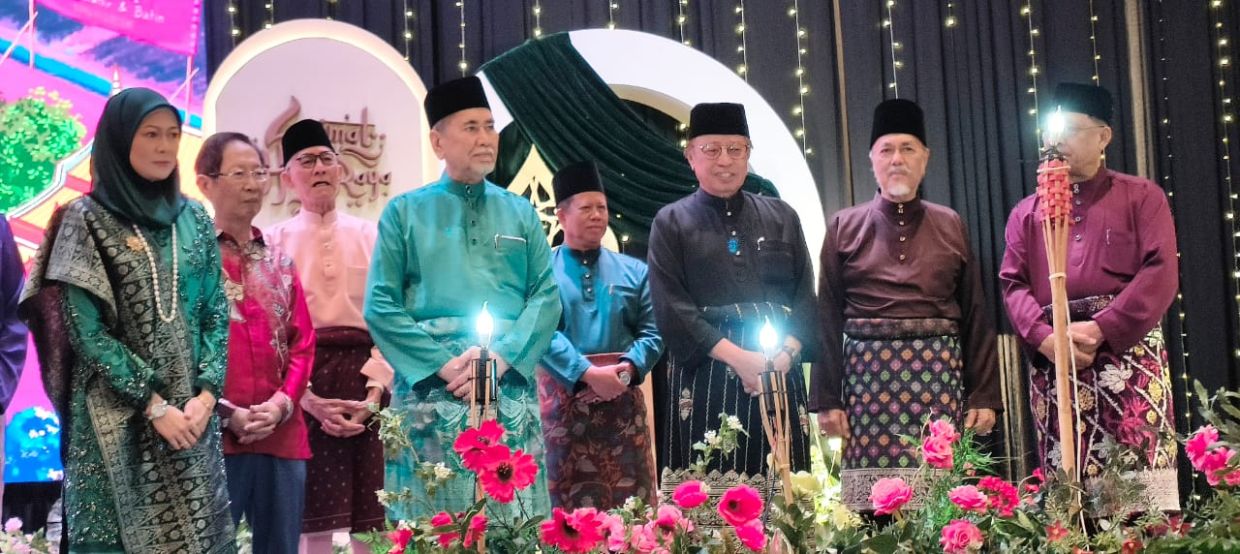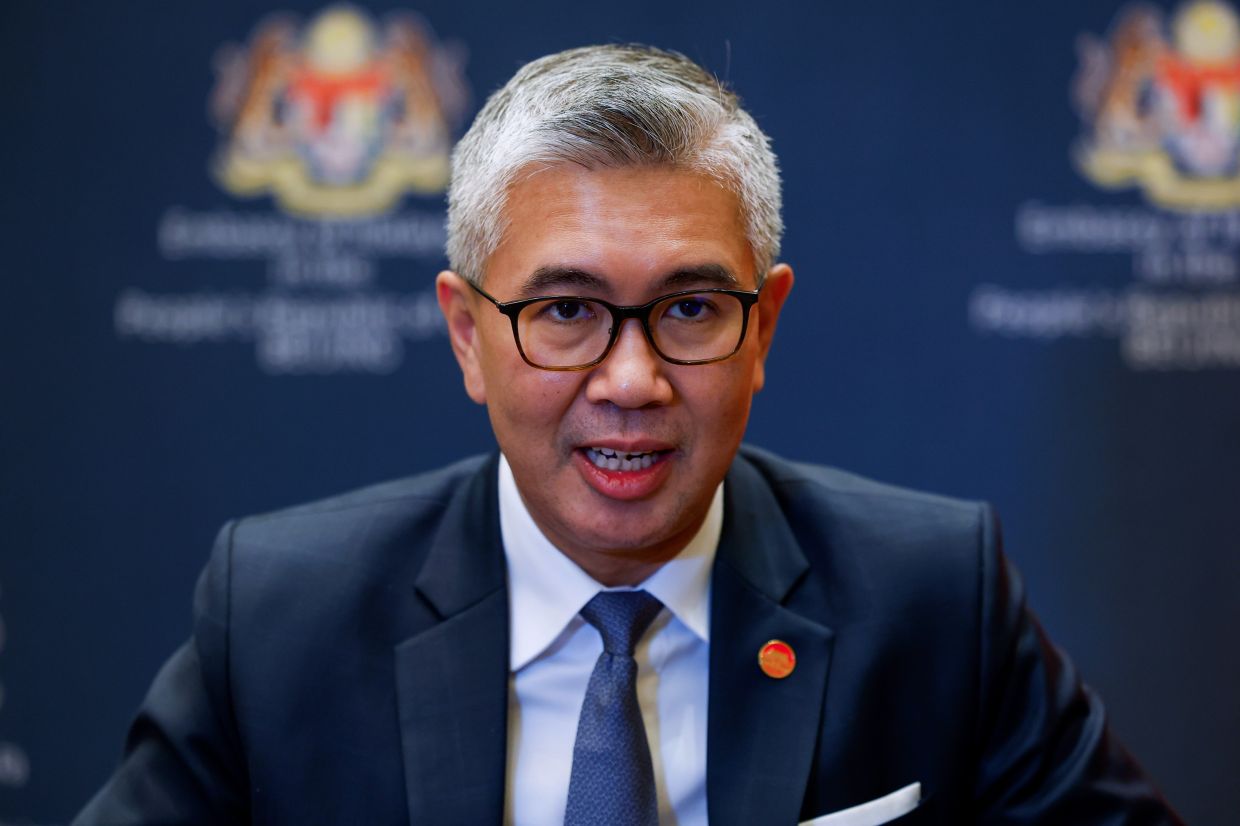
Congratulations: Johari (front row, eighth from right) posing for a group photo with award winners at the event in Putrajaya. Accompanying him (on the step, from right) are Ahmad Parveez, Mohamad Helmy and Chan. — ART CHEN/The Star
PUTRAJAYA: A proposal to revise the windfall profit levy (WPL) on palm oil has been made due to increased costs that have caused the windfall margin to become “virtually non-existent,” says the Plantation and Commodities Minister.
Datuk Seri Johari Abdul Ghani said rising production costs have reduced the effectiveness of the WPL, and a review is necessary to keep Malaysia’s palm oil industry competitive with other producing countries.
He said the proposal has been submitted to the Finance Ministry to either abolish or increase the WPL threshold.
Johari said the industry, along with the Malaysian Palm Oil Board (MPOB), has raised concerns over the current levy due to the increased costs of palm oil production.
“It now costs around RM2,800 to RM3,000 to produce a tonne of palm oil, while the windfall tax starts at RM3,500. With costs already nearing this threshold, the windfall margin is practically non-existent,” he said after the Malaysian Palm Industry Awards ceremony yesterday.
Currently, a WPL rate of 3% is applied to palm oil prices exceeding RM3,000 per tonne in Peninsular Malaysia and RM3,500 per tonne in Sabah and Sarawak.
A windfall tax is a levy imposed on a company or industry when economic conditions result in large and unexpected profits.
Johari said the Finance Ministry has been urged to reconsider the current tax framework, and he is awaiting a response on the matter.
He also addressed the industry’s concerns, particularly regarding replanting efforts and labour shortages.
He said smallholders managing over 1.5 million hectares of palm oil plantations face challenges with ageing trees.
“Last year, RM100mil was allocated for replanting, but the need will grow to ensure future exports remain stable,” he said, adding that replanting takes about six to seven years to yield results.
In terms of production, crude palm oil (CPO) output rose to 8.9 million tonnes in the first half of the year, up from 8.1 million tonnes in the same period last year. Palm oil exports also increased by 32%, from 12.2 million tonnes to 16.1 million tonnes.
Johari said it was important to use high-quality seedlings certified by the MPOB for replanting, adding that around 10% of the plantation area, or approximately 560,000ha, consists of trees older than 25 years, leading to a drop in CPO production.
Meanwhile, MPOB chairman Datuk Mohamad Helmy Othman Basha urged industry players to adhere to regulations and standards to position Malaysia’s palm oil as a global benchmark.
He added that there is a need to ensure palm oil production meets quality, environmental, and social governance standards.
At the Awards, over 30 companies were honoured in nine categories, including mill operations, refineries, nurseries, and plantations.
Deputy Minister Datuk Chan Foong Hin and MPOB director- general Datuk Ahmad Parveez Ghulam Kadir were also present at the event.









































